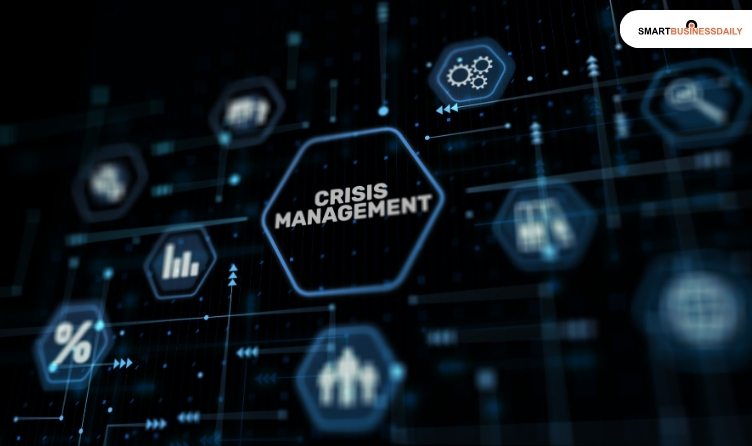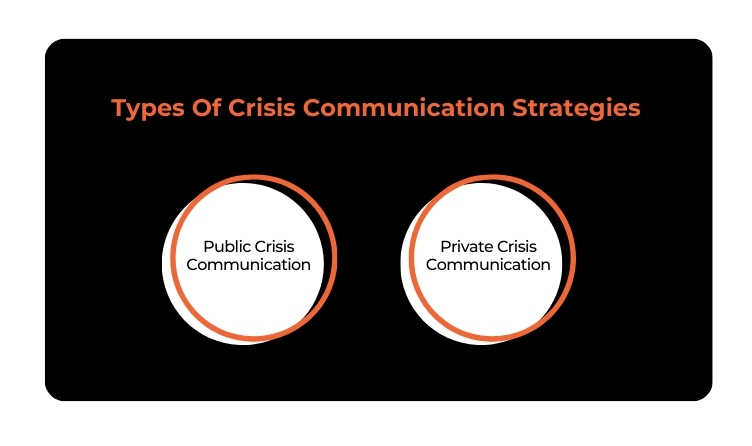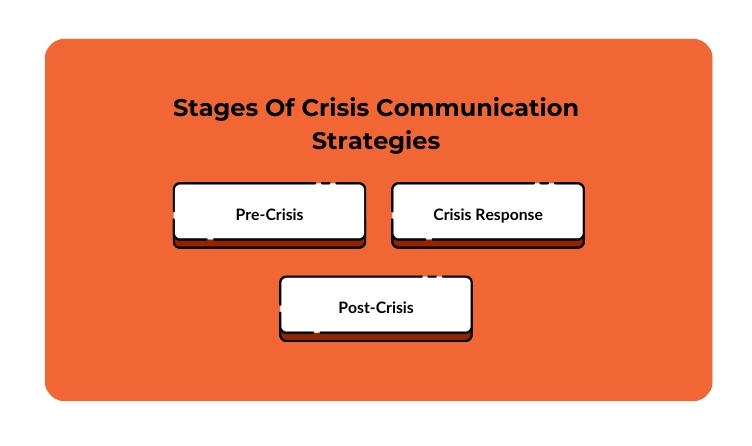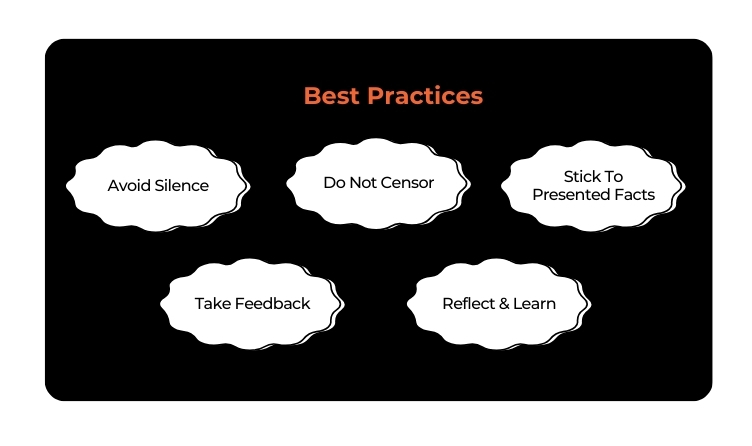Comprehensive Guide to Understanding Crisis Communication Strategies
24 August 2024
7 Mins Read

- What are Crisis Communication Strategies?
- Do You Need it?
- Types of Crisis Communication Strategies
- Stages of Crisis Communication Strategies
- Pre-Crisis
- Crisis Response
- Post-Crisis
- Crisis Communication Strategies You Must Employ
- Be Quick
- Use Proper Channels of Communication
- Creating a Plan
- Training
- Best Practices
- The End Note
Managing a crisis is about more than just the plan or the skillset. It is also about communication. A crisis can only be handled efficiently with proper channels of communication. This article will help you with that. We would effectively discuss the importance of crisis communication strategies and how they can help you.
Therefore, stick around to learn how crises can be handled by maintaining clarity and transparency across business operations. However, it would help if you also remembered that a crisis can be unique. Therefore, you might have to come up with entirely new strategies.
With that note, let us dive right in.
What are Crisis Communication Strategies?

It is not easy being an entrepreneur. You never know what might go wrong or what crisis you find yourself in. As a result, businesses need to have a crisis management plan to get them out of the fix.
However, the most crucial pre-determined factor that influences the success or failure of the plan is communication. In other words, having a crisis management team or plan would not cut it out. It would help if you also had crisis communication strategies.
Do You Need it?
Crisis communication strategies are steps businesses can take to keep an open conversation channel. It is an essential aspect of crisis management. honesty, you cannot expect results from a department that does not communicate effectively.
During a crisis, fear, confusion, and uncertainty are three of people’s most essential and natural reactions. Therefore, it is crucial to keep an open conversation channel to make things easier.
The sole purpose of crisis communication is to keep an open channel of communication across departments to regain control and clarity. Therefore, you need crisis communication strategies to keep the ball rolling and ‘fix’ the issue.
Types of Crisis Communication Strategies

Communication strategies during a crisis are crucial, as we have pointed out. However, understanding the two primary crisis communication strategies is essential in assessing the right one for your situation. Crisis communication is generally divided into two primary types of communication strategies. These include:
- Public Crisis Communication: As the name suggests, this form is aimed towards external factors. This communication is between a business and its clients, stakeholders, and community.
- Private Crisis Communication: This is aimed at the internal team, and it is aimed at providing clarity to the team members. This, in turn, enables the team to address the problem accordingly.
Two variants serve entirely different purposes. However, they are integral to building proper crisis communication strategies. Otherwise, the whole system fails even before it can start producing results.
Stages of Crisis Communication Strategies

A business crisis can come in various ways. However, business analysts have decoded business crises. Business crises are usually broken into three distinct stages. These stages are critical and should be studied individually.
The following three subsections are aimed towards that endeavor. Here are some of the most common and well-known stages of a business crisis that you must know about.
There are no definite markers that can help you predict an economic crisis. In fact, predicting a financial situation is very difficult and challenging, to say the least. Therefore, a business needs to know and understand the stages of crisis communication strategies.
Pre-Crisis
The pre-crisis phase is the calm before the storm. This is the calmest stage of the whole process. However, it is also the most crucial time of the process. In the pre-crisis stage, the crisis management team will sit and chalk out plans.
The pre-crisis moment determines whether a business would try to prevent or contain a crisis. This is one of the most critical aspects of managing a crisis. Thankfully, some applications can help you effectively identify an approaching crisis.
However, a team of professionals can also do the same.
Crisis Response
The second stage of crisis management is the crisis response. Crisis response is a critical stage. This is where you will be allowed to use your crisis management skills to contain the situation.
This stage is characterized by active efforts taken to contain a situation. Therefore, it is one of the most critical aspects of the whole process. Crisis response demands prompt actions against the approaching problem.
As a result, keeping an open line of communication across departments is essential. Otherwise, you are simply opening yourself up to more problems.
Post-Crisis
The final stage of a crisis is the post-crisis stage. This is the final stage, but it is equally important. The period after a crisis is usually defined as the post-crisis phase. Just because a business is out of danger, it does not mean that communication should cease to exist.
Instead, a post-crisis analysis is seminal. It allows businesses to learn things from a crisis situation and gain insight into how to avert a crisis. In fact, post-crisis analysis also helps a company understand what it needs to do to deal with the consequences.
Therefore, the post-crisis period is about learning and growing. This can significantly improve an organization’s communication during a future crisis.
Crisis Communication Strategies You Must Employ

Every crisis situation is different. There is no one-size-fits-all solution when handling a crisis. In other words, every crisis provides a different challenge than the other. Therefore, it is essential to understand and acknowledge these differences.
However, businesses have seen that some practices work better than others. Here are some of those crisis communication strategies you need to learn and implement while handling a crisis and communicating simultaneously.
Here we go!
Be Quick
The foremost thing that you should do is to be quick. A crisis can be catastrophic if it is not handled expertly. Therefore, to make your crisis communication plan work, you need to move quickly.
Define the chain of command and work accordingly. Try to keep things streamlined and keep the flow of information manageable.
However, there is a fine line between being quick and rushing. Be fast, but take your time. The latter would get you nothing.
Use Proper Channels of Communication
Communication is one of the most prominent ways of keeping everyone on the same page and in sync. As soon as a business crisis arrives, you and your team should conduct an all-hands meeting.
In this meeting, all the proper channels of communication will be defined. The chain of command and the hierarchy of your business would follow during the crisis period.
The best way to define communication channels is by documenting the whole deal. In other words, keeping a proper trail of documents can help employees calm down and regain control of the situation.
Creating a Plan
Crafting a POA or a plan of action is one of the most essential details for a strategy. A strategy without effective planning is just smoke rings on a windy day. It is not sustainable in any way.
Therefore, you must sit with the team and create a comprehensive crisis management plan using effective crisis communication strategies.
This helps the team traverse this unknown terrain with more clarity and context. Hence, sit with the team to create an effective plan that works.
Training
The final way that can complement your company’s crisis management strategies is to have a dedicated set of trained individuals.
Therefore, you should create a dedicated crisis management team that can help your business get out of the fix. Thus, a trained set of employees is the need of the hour for your business.
Try to create a diverse team and impart crisis management skills. This would help you and your business to contain crises at the ground level.
Best Practices

Now that you know some of the best crisis communication strategies, you are ready to go to the final section of this article. This section will show some of the best practices you must follow while formulating your crisis communication strategies.
Avoid Silence: Most businesses go silent when a crisis approaches them. This ineffective strategy does not produce any positive set of results. Therefore, during a crisis, you should communicate more so that everyone has clarity about the situation or crisis communication strategy.
Do Not Censor: Censorship is good. It helps businesses to maintain a functional image. However, censorship during a crisis is futile and detrimental. It can stop the free flow of information, giving rise to another crisis.
Stick to Presented Facts: It is easy to be swayed by misinformation during a crisis. However, it would help if you did not forget the importance of facts. Therefore, only concentrate on facts.
Take Feedback: Feedback is an essential part of business operations. Feedback allows businesses to know what the customer wants or feels like. Therefore, take feedback to improve the situation.
Reflect & Learn: Last but not least, you should use this opportunity to learn something new and valuable. Take this as an opportunity to grow.
The End Note
In summation, this is all there is to discuss regarding crisis communication strategies. Crises can arise at any business point. Therefore, knowing how to deal with and communicate during that period is integral.
However, communicating and being transparent is the only way to manage a crisis. Therefore, follow the pointers mentioned earlier if you face any financial situation at your company.
Keep following our page for more such content.
Read Also:
















Comments Are Closed For This Article